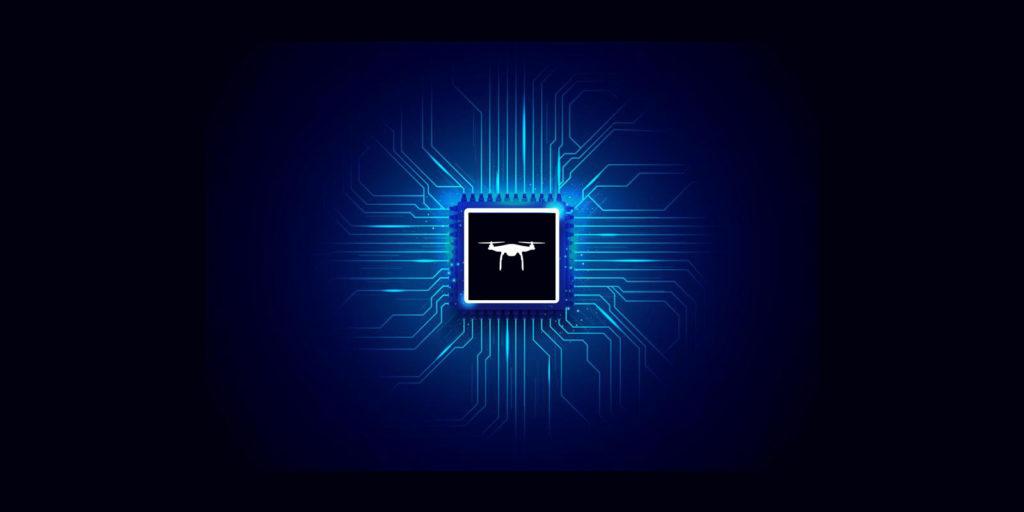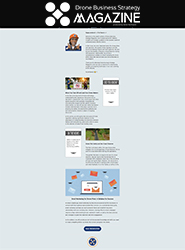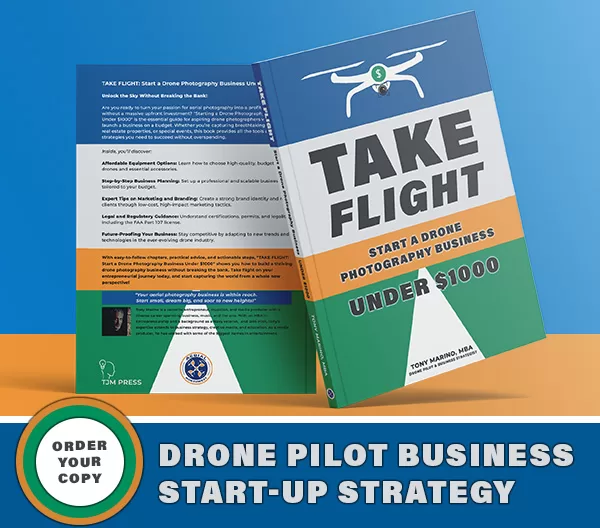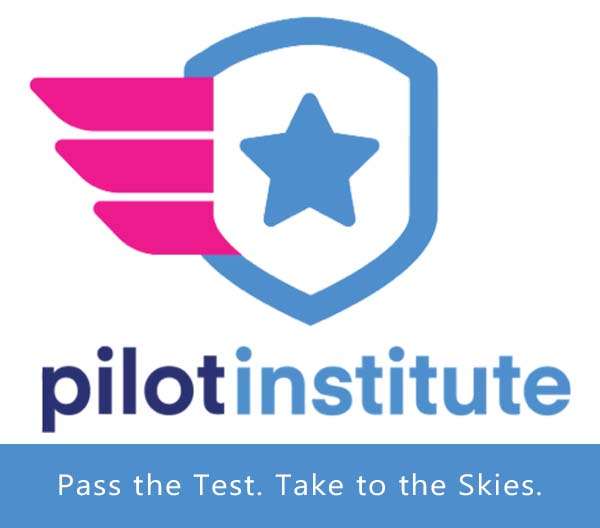
From enhanced communication and task efficiencies to improved flight safety, AI technologies and drone service agencies are aligning and soaring to new heights. The commercial drone industry has seen explosive growth in recent years, with drones being used for everything from aerial photography and surveying to package delivery and search and rescue missions. As the demand for drone services continues to rise, so too does the need for innovative solutions that can help drone pilots to streamline their operations, increase efficiency, and deliver the highest quality services possible. One such solution is artificial intelligence (AI), and in particular, the advanced AI technologies developed by OpenAI, including their chatbot system ChatGPT.
In this article, we will explore how OpenAI and ChatGPT can benefit commercial drone pilots, and how these cutting-edge AI technologies are transforming the drone industry as a whole.
Drone Photographers, OpenAI and ChatGPT
Here are some real-world examples of how drone photographers can use OpenAI and ChatGPT:
- Client Communication: ChatGPT can help drone photographers to answer common questions about their services and pricing, allowing them to focus on the actual flying and delivering their services. This can improve communication with clients and help to build stronger relationships.
- Automated Tasks: ChatGPT can be used to automate certain tasks such as scheduling appointments, sending out service reminders, and following up with clients. This can save time and improve efficiency, allowing the drone photographer to take on more clients or complete more drone photography services in a given timeframe.
- Image Analysis: OpenAI can be used to analyze aerial images captured by drones and detect anomalies or patterns that may be difficult to spot with the human eye. For example, AI can be trained to detect changes in vegetation patterns that may indicate the presence of pests or disease in crops, or to identify cracks or defects in infrastructure such as bridges and buildings.
- Safety Features: OpenAI can be used to develop advanced safety features for drones, such as obstacle detection and avoidance, and emergency landing capabilities. This can help to prevent accidents and improve the overall safety of drone photography operations.
Understanding the Differences Between Open AI and ChatGPT
OpenAI and ChatGPT are related but distinct entities. OpenAI is an artificial intelligence research laboratory focused on developing cutting-edge AI technologies that benefit humanity as a whole. ChatGPT, on the other hand, is an AI-powered chatbot created by OpenAI that uses the GPT architecture to generate human-like responses to text-based inputs.
The primary difference between OpenAI and ChatGPT is their focus and scope. OpenAI’s research covers a wide range of topics related to artificial intelligence, including natural language processing, computer vision, and robotics. Its research is focused on advancing the development of AI in a safe and beneficial way, with a mission to create AI that benefits humanity as a whole.
ChatGPT, on the other hand, is a specific product developed by OpenAI that uses advanced natural language processing algorithms to generate human-like responses to text-based inputs. It is designed to provide an effective communication channel between humans and machines, allowing users to interact with artificial intelligence in a more natural and intuitive way.
OpenAI Defined
OpenAI is an artificial intelligence research laboratory consisting of a team of scientists, researchers, and engineers who are focused on advancing the development of artificial intelligence in a safe and beneficial way. It was founded in 2015 by several high-profile individuals, including Elon Musk and Sam Altman, with the goal of creating artificial intelligence that benefits humanity as a whole.
OpenAI’s research covers a wide range of topics related to artificial intelligence, including natural language processing, computer vision, reinforcement learning, and robotics. The organization has made significant contributions to the field of artificial intelligence, including the development of advanced language models such as GPT-3, which is widely considered to be one of the most advanced language models to date.
OpenAI’s research is driven by a mission to create artificial intelligence that is safe and beneficial for all of humanity. The organization believes that AI has the potential to be a powerful tool for solving some of the world’s biggest challenges, from climate change to disease prevention. However, they also recognize that the development of AI must be done in a responsible and ethical way to ensure that it does not have unintended negative consequences.
ChatGPT Defined
ChatGPT is an artificial intelligence-powered chatbot created by OpenAI. It is based on the GPT (Generative Pre-trained Transformer) architecture, which is a type of language model that uses deep learning algorithms to generate human-like responses to text-based inputs.
ChatGPT is designed to provide an effective communication channel between humans and machines, allowing users to interact with artificial intelligence in a more natural and intuitive way. It can be trained on large datasets of human language, allowing it to generate responses that are contextually relevant and grammatically correct.
The chatbot can be used in a variety of settings, including customer service, healthcare, and education. It can answer common questions, provide recommendations, and even engage in small talk with users. ChatGPT’s responses can be customized to suit the needs of specific industries or businesses, making it a versatile tool for a wide range of applications.
AI Benefits for Drone Pilots
OpenAI and ChatGPT can benefit drone pilots who sell drone services in several ways:
- Improved communication: ChatGPT can provide an effective communication channel between drone pilots and their clients. The language model can answer common questions about drone services, pricing, and availability, allowing the drone pilot to focus on the actual flying and delivering their services.
- Personalization: ChatGPT can be trained on specific data sets related to drone services to provide personalized responses to clients based on their unique needs and requirements. This can help drone pilots to build stronger relationships with their clients and increase customer loyalty.
- Enhanced Efficiency: ChatGPT can help drone pilots to automate certain tasks such as scheduling appointments, sending out service reminders, and following up with clients. This can save time and improve efficiency, allowing the pilot to take on more clients or complete more drone services in a given timeframe.
- Innovation: OpenAI is constantly researching and developing cutting-edge AI technologies that can be applied to a wide range of industries, including drone services. As new innovations are developed, drone pilots can benefit from improved safety features, increased precision, and other advancements that can enhance the quality of their services.
AI and Improved Communication for Drone Pilots
ChatGPT can provide an effective communication channel between drone pilots and their clients by automating the process of answering common questions related to drone services. For example, clients may have questions about the pricing, availability, or the specific services that the drone pilot offers. ChatGPT can be trained on relevant data sets to provide accurate and personalized responses to these questions.
By providing instant responses to clients’ questions, ChatGPT can save the drone pilot valuable time and effort that would otherwise be spent on answering these queries manually. This can free up the drone pilot’s time to focus on other aspects of their business, such as flying drones, capturing footage, and editing videos.
Furthermore, ChatGPT can improve the overall customer experience by providing clients with quick and accurate answers to their queries. This can help to build trust and confidence in the drone pilot’s services, leading to increased customer satisfaction and loyalty.
AI and Personalization Benefits for Drone Pilots
ChatGPT can be trained on specific data sets related to drone services to provide personalized responses to clients based on their unique needs and requirements. For example, a drone pilot may have a client who is interested in capturing aerial footage for a real estate listing. ChatGPT can be trained on relevant data sets related to real estate drone services, allowing it to provide personalized responses to the client’s specific needs and requirements.
By providing personalized responses, ChatGPT can help drone pilots to build stronger relationships with their clients. This can lead to increased customer satisfaction and loyalty, as clients feel that their needs are being fully understood and addressed by the drone pilot.
Furthermore, ChatGPT can help drone pilots to offer customized services to their clients based on their unique requirements. For example, if a client wants aerial footage captured at a specific time of day or under specific weather conditions, ChatGPT can provide a quick and accurate response to let the client know if this is possible.
AI and Enhanced Efficiency for Drone Pilots
ChatGPT can help drone pilots to automate certain tasks, such as scheduling appointments, sending out service reminders, and following up with clients. This can save time and improve efficiency, allowing the drone pilot to focus on flying drones and delivering their services, rather than spending time on administrative tasks.
For example, ChatGPT can be integrated with a scheduling system, allowing clients to schedule appointments directly through the chatbot. ChatGPT can confirm the appointment, send reminders to the client before the appointment, and even provide directions to the location of the service. This can save the drone pilot valuable time that would otherwise be spent on manually scheduling appointments and sending reminders.
ChatGPT can also be used to follow up with clients after the service has been delivered, requesting feedback or providing additional information about the drone footage captured. This can help to improve customer satisfaction and build stronger relationships with clients, leading to increased loyalty and repeat business.
AI Innovation for Drone Pilots
OpenAI is constantly researching and developing cutting-edge AI technologies that can be applied to a wide range of industries, including drone services. As new innovations are developed, drone pilots can benefit from improved safety features, increased precision, and other advancements that can enhance the quality of their services.
For example, OpenAI is actively researching ways to improve the safety of drone operations through the use of machine learning algorithms that can detect and avoid obstacles in real-time. This technology can help drone pilots to avoid collisions and other safety hazards, improving the safety of both the drone and the surrounding environment.
In addition, OpenAI is developing advanced computer vision algorithms that can improve the accuracy and precision of drone operations. These algorithms can help drone pilots to capture high-quality footage and images, even in challenging environments or under difficult lighting conditions.
Furthermore, OpenAI is researching ways to improve the efficiency and automation of drone services through the use of advanced AI technologies. This can help drone pilots to streamline their operations, reduce costs, and provide better overall service to their clients.
Overall, OpenAI’s ongoing research and development of cutting-edge AI technologies can lead to significant improvements in the quality, safety, and efficiency of drone services.
AI Applications for Drone Photography
Aerial drone photography is a popular application of drone technology, used for everything from real estate and tourism marketing to environmental monitoring and filmmaking. OpenAI and ChatGPT can benefit aerial drone photography in a number of ways.
First, ChatGPT can help photographers communicate with clients more effectively, providing personalized responses to inquiries about pricing, availability, and other important details. This can save time and improve the customer experience, making it easier for photographers to build long-term relationships with their clients.
Second, OpenAI’s advanced computer vision technologies can help drone photographers to capture more precise and detailed images. For example, AI-powered object detection algorithms can help photographers identify and track specific subjects, such as wildlife or construction sites. This can improve the quality and accuracy of the images, making them more useful for a variety of applications.
Finally, as OpenAI continues to develop new AI technologies, drone photographers can benefit from enhanced safety features, improved autonomy, and other cutting-edge innovations. For example, AI-powered obstacle detection and avoidance systems can help prevent collisions and other accidents, while advanced machine learning algorithms can help drones to navigate complex environments more effectively.
Drone Pilots and AI Pitfalls
Drone Pilots and AI Pitfalls
While there are many potential benefits of using Open AI and ChatGPT in drone operations, there are also some potential pitfalls that drone pilots should be aware of.
First and foremost, relying too heavily on AI technologies can lead to a loss of personal touch in communication with clients. While ChatGPT can provide fast and efficient responses to common inquiries, it’s important for drone pilots to maintain a human connection with their clients and ensure that their needs are being fully understood and addressed.
Secondly, as with any advanced technology, there is a risk of technical failures or malfunctions. In the case of AI-powered drones, this can result in crashes or other accidents that can damage equipment or harm people. Drone pilots must ensure that they are properly trained to operate their drones and that they understand the limitations and potential risks of the AI technologies they are using.
Thirdly, there is the risk of relying too heavily on AI for decision-making, particularly in situations where human judgement and discretion may be required. While AI can process vast amounts of data quickly and efficiently, it is not always able to take into account the nuances and complexities of human situations. Drone pilots must exercise their own judgement and discretion when operating their drones and should not rely solely on AI to make decisions for them.
The Takeaway
The benefits of OpenAI and ChatGPT for commercial drone pilots are numerous and significant. From enhanced communication and personalization to improved efficiency and innovation, AI technologies offer a wealth of opportunities for drone pilots to provide top-quality services to their clients. As the drone industry continues to grow and evolve, it is clear that AI will play an increasingly important role in shaping the future of this exciting field.
By embracing the latest AI technologies and leveraging the power of OpenAI and ChatGPT, drone pilots can stay ahead of the curve and deliver the best possible services to their customers.
Be smart, safe, and forever fly!
If you have any questions, let us know! If you’d like to hire us, you can get more information here.
Written by: Tony Marino, MBA – FAA Certified Part 107 Commercial Drone Pilot and Chief Business Strategist at Aerial Northwest
Frequently Asked Questions
References
Reich, A., & Shimmerman, D. (2021). Age of Invisible Machines: A Practical Guide to Creating a Hyperautomated Ecosystem of Intelligent Digital Workers (1st ed.). Wiley.
Taulli, T. (2019). Artificial Intelligence Basics: A Non-Technical Introduction (1st ed.). Apress.
Disclaimer: The information provided in this blog post is for general informational purposes only and should not be construed as legal advice.

DRONE BUSINESS STRATEGY MAGAZINE
A free digital publication made exclusively for all small business drone pilots to them help start-up, become profitable while sustaining a competitive advantage within the drone service industry sector they opt to serve.
“If you love to fly, we’d love to have you come aboard!”
We share your information with no one. Our Privacy Policy.









Leave a Reply
Your email is always safe with us.